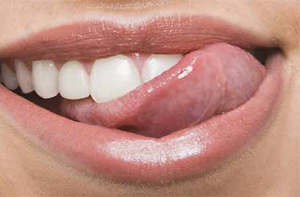Washington, Jun 20: Pregnant and postpartum women are usually at a high risk of depression and anxiety - one in seven women struggle with symptoms in the perinatal period and the coronavirus pandemic is exacerbating those struggles according to a recent study.
The study was published in Frontiers in Global Women's Health, which found that the likelihood of maternal depression and anxiety has substantially increased during the health crisis.
"The social and physical isolation measures that are critically needed to reduce the spread of the virus are taking a toll on the physical and mental health of many of us," said Dr. Margie Davenport of the University of Alberta, Canada, who co-authored the study.
For new moms, those stresses come with side effects.
"We know that experiencing depression and anxiety during pregnancy and the postpartum period can have detrimental effects on the mental and physical health of both mother and baby that can persist for years," said Davenport.
Such effects can include premature delivery, reduced mother-infant bonding, and developmental delays in infants.
The study surveyed 900 women - 520 of whom were pregnant and 380 of whom had given birth in the past year - and asked about their depression and anxiety symptoms before and during the pandemic.
Before the pandemic began, 29 percent of those women experienced moderate to high anxiety symptoms, and 15 percent experienced depressive symptoms. During the pandemic, those numbers increased - 72 percent experienced anxiety and 41percent experienced depression.
Because lockdown measures have affected daily routines and access to gyms, researchers also asked women whether their exercise habits had changed. Of the women surveyed, 64 percent reduced their physical activity since the pandemic began, while 15 percent increased and 21 percent experienced no change.
Exercise is a known way to ease depression symptoms, so limited physical activity may result in an uptick in depressive symptoms. Indeed, the study found that women who engaged in at least 150 minutes of moderate physical activity a week had significantly lower symptoms of depression and anxiety.
The findings are somewhat limited given the fact that researchers could not survey women before the pandemic began (since they could not know a pandemic would occur). The women surveyed could only offer their pre-pandemic symptoms in hindsight.
Also, while the researchers asked women about their symptoms using validated measures, only mental health care professionals can validly diagnose an individual with depression or anxiety.
The study was specifically interested in the impact of COVID-19 on new moms, but Davenport says maternal mental health is a critical issue no matter the time.
"Even when we are not in a global pandemic, many pregnant and postpartum women frequently feel isolated whether due to being hospitalized, not having family or friends around or other reasons," she said.
"It is critical to increase awareness of the impact of social (and physical) isolation on the mental health of pregnant and postpartum women," Davenport added.
Increased awareness makes diagnosis and treatment - the ultimate goal - more likely.
 Chewing requires a complex interplay between the tongue and jaw, with the tongue positioning food between the teeth and then moving out of the way every time the jaw clamps down to grind it up.
Chewing requires a complex interplay between the tongue and jaw, with the tongue positioning food between the teeth and then moving out of the way every time the jaw clamps down to grind it up.




Comments
Add new comment